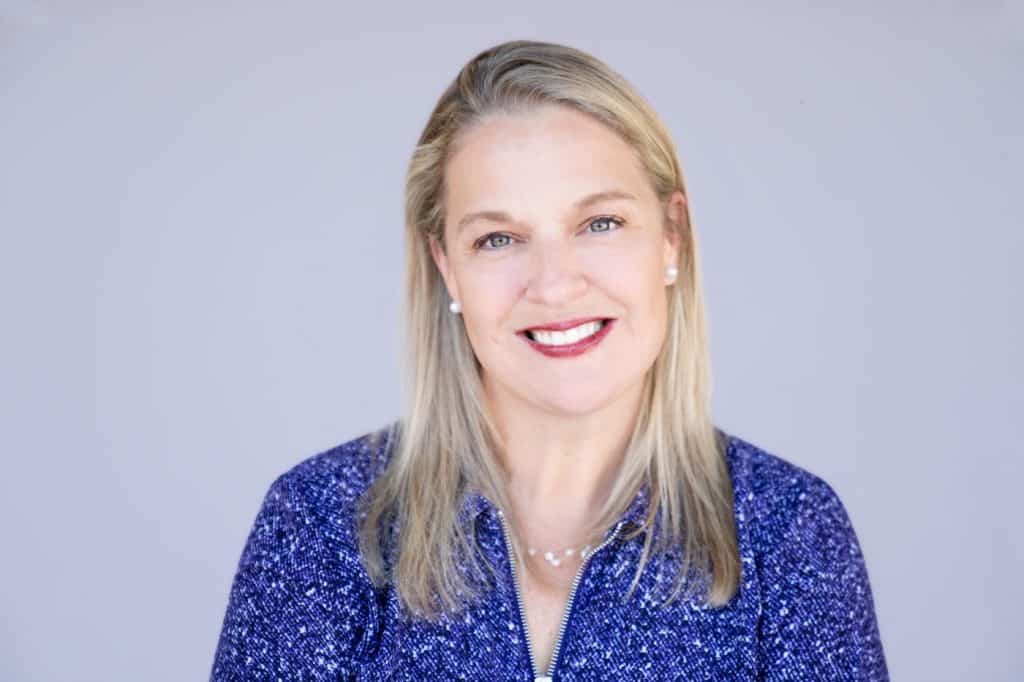Perspectives
7wireVentures Presents: Top of the Ladder Featuring Naomi Allen, Co-Founder and CEO of Brightline

For Naomi Allen, Co-Founder and CEO of Brightline, her work is personal. After navigating the complex behavioral health space for her son Mateo, Naomi founded Brightline and is committed to transforming the experience for others.
We connected with Naomi to learn more about her path to healthcare, her formative experiences navigating the behavioral health system with her child, her morning routine as a mom of three, and more.
When you were a child, what did you want to be when you grew up?
My dad is a pediatric anesthesiologist, so I always assumed I would make my way into medicine. I was very involved in science and math in high school and was pre-med the first few years of college before I decided to take a pause on that journey to learn more about business and eventually, the business side of healthcare.
After college I worked at Deloitte as a business analyst. Given my pre-med background, I was quickly tracked into the healthcare practice where I worked with provider clients, and several projects mapping hospital and patient workflows. In that role I learned how to code and quickly fell in love with the idea of technology-enabled healthcare optimization. At that point I realized I probably wouldn’t become a doctor, and instead wanted to dedicate my career to working at the intersection of healthcare and technology.
I feel lucky because the initiatives that I was personally passionate about ended up evolving into a major industry – what we now refer to as Digital Health.
What was your first job?
 I grew up in a very small town in South Georgia, where my mom owned a Public Relations agency. One of her clients was Mars, the candy and snack company. In the most legitimate sense, my first job was at eight years old when I was a model for Combos, the pretzel snacks. Eventually the agency was able to pay for a real model.
I grew up in a very small town in South Georgia, where my mom owned a Public Relations agency. One of her clients was Mars, the candy and snack company. In the most legitimate sense, my first job was at eight years old when I was a model for Combos, the pretzel snacks. Eventually the agency was able to pay for a real model.
At age eight, I earned enough money to buy tickets for my mom and I to see Peter Pan on Broadway in New York City. I still remember feeling like such a big kid because I bought the tickets!
Growing up in South Georgia, my mom was the only working mother that I knew. As a working mother of three, I learned so much from seeing her run her own company, working in her home office, pausing for dinner with her family and returning to her work if she was pushing on a deadline. From her I learned how to juggle work and family life, how to prioritize, and importantly de-prioritize and say no. I have learned so much from her and other women I view as role models in terms of how to navigate a career and family. Over the years, I have learned to hire the people who have so many things going on in their lives because they know how to get things done, how and where to prioritize, and when they are on- they are really on!
What does your morning routine look like?
I would like to say that I’m the kind of person who consistently wakes up early in the morning and works out but that doesn’t always happen. I do try to wake up around 5:00 a.m. a few days a week to exercise on my Peloton. When I do that, I actually get back in bed after and pretend I’m still asleep so that by the time my kids wake up, they get the joy of waking me up and snuggling together before we start our day. My kids are getting older, so this is something I really try to maintain when I’m not traveling because these years are going fast. After that, we have breakfast and I typically start working around 8:30 a.m.
Brightline brings exceptional behavioral health care to kids, teens, and their families, when and where they need it. Can you share how your personal hurdles accessing care for your son inspired you to found Brightline?
I’ve always had a passion for behavioral health but what catalyzed that passion for me were my own experiences with my oldest son when trying to access behavioral health services for him.
It was scary and difficult as a parent to get support for my son in school, find him a physician, and get involved in his treatment, especially as a working parent. I remember after my son graduated from his therapy program, I received an email asking us to review his therapist. I responded asking to have a conversation with his therapist to learn more about what we could be doing differently to support him as parents. They responded by saying that parent education occurs at drop off and pick up. I remember thinking “What do you do for working parents?” It was a frustrating moment to be told that I missed the opportunity to be involved in my son’s care because I wasn’t the one physically driving him to his appointments.
Fortunately, my son is doing great now but I lost a lot of sleep and felt guilt, frustration, and anger during that time. This experience really crystalized for me just how broken the pediatric behavioral healthcare services system is. When I was later ideating on starting a behavioral health company, I knew it would be for pediatrics. And here we are now – two years later.
How did COVID impact the business?
We created Brightline around the notion that kids need high quality and accessible mental health care solutions that treat the child and support their family or caregivers.
The original impetus for the business was to offer multidisciplinary care in physical clinics with wrap around offerings via technology. When the pandemic hit, we decided to focus on virtual first. Our priorities became standing up our care models safely and effectively for virtual-first care and developing protocols and training for building therapeutic rapport virtually. We then focused on scaling this model across the country as quickly as possible.
I have to give massive kudos to our entire team for executing on a transformational business change. We stayed focused on our core mission, which helped give us strength during this time. I believe you can only execute a change like that when you have the quality team and the board support that we have. Both were truly phenomenal throughout that process.
Brightline has been focused on prioritizing the delivery of inclusive, identity-centered behavioral and mental healthcare for kids, teens, and their families – most recently through your partnership with Violet. Can you talk more about Brightline’s priority on delivering such care and what this partnership means for driving access to care?
At Brightline, diversity, equity, inclusion, and belonging are not just about establishing a core set of principles, metrics, and rhythms for how we operate for our own employees. Rather, it is about how we show up to the world to decrease the health equity gap as it relates to mental health and in particular, pediatric mental health.
COVID-19 exacerbated health equity issues, and disparities in access to high quality care. As a result, there is a lot we’re focused on around how to address these issues. Within our diversity, equity, inclusion, and belonging working group, we stood up a set of workstreams that have very clear, measurable goals around building platforms to systematically support a broader, more diverse set of families.
One part of that is ensuring our clinicians are trained to provide inclusive and diverse care for our children and families. We’ve partnered with organizations like Violet to help achieve that goal. Violet has specific measurement and assessment tools to measure cultural competency and capabilities of clinicians, as well as offers extensive training modules. We’re taking all of our clinical staff through their program to better identify which clinicians have specific areas of expertise as part of our ongoing commitment to delivering inclusive care and enabling our care providers to be the best for the communities we serve.
You’ve discussed Brightline’s focus on increasing female representation across your technology team – with a goal of increasing female representation from 33% today to 50% in the future. Can you share more about your focus on diversity and why diversity is so important to you as your team scales and grows?
We know that more diverse teams yield better outcomes. For me and my team, diversity was an obvious way for us to build our business from the beginning.
I believe that if you get too far along in building an individual organization without focusing on diversity, it’s harder to focus on it later. Over the past year our engineering team grew substantially and we’ve made a concerted effort to hire diverse talent across all levels of that team, including a number of female and racially diverse engineers.
Also, Brightline is a healthcare business. In many cases, women are the key decision makers for their family’s health, especially around pediatric care. In the spirit of user centered design, having a female voice and perspective is a key element to how we tap into the humanity of what we do.
We’re so excited to have been a part of Brightline’s Series B financing earlier this year! Can you share what excites you about the future of the company and what we can expect in the next year?
The year ahead is probably the most exiting year for us yet! We’ll see sizeable business growth, which means we get to serve even more families. We also have a very ambitious roadmap and plans for expanding our care model and how we serve our families.
 What is your superpower?
What is your superpower?
My superpower is the ability to flex between high empathy and high expectations in terms of managing the company. At Brightline we work hard, we push hard, and we deliver and execute like crazy. But we do it with love, support, and understanding for each other’s personal experiences.
What book are you reading right now?
I’ve been unsuccessfully reading Hamilton for the past 6-months. I’m obsessed with Hamilton but I read about three pages each night, fall asleep and the book hits my nose and it hurts every time. I clearly need to pick a lighter book!
What is one piece of advice you’d offer to other digital health entrepreneurs?
I think sometimes founders get paralyzed in starting companies because they are looking for their perfect fit in a Co-Founder. I believe that having a positive relationship with your Co-Founder, your early investors, and your first hires are equally as important.
Pick your early-stage investors not on the valuation they offer you, but on the role that they will play in helping you build your team and your businesses. Take that same approach with each of your first ten hires. Board dynamics and a strong team are how you can successfully navigate the messiness that inherently comes with founding a company.